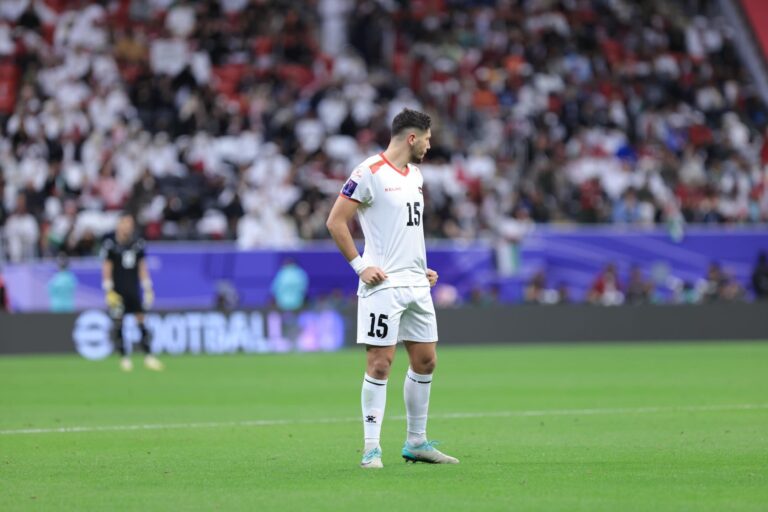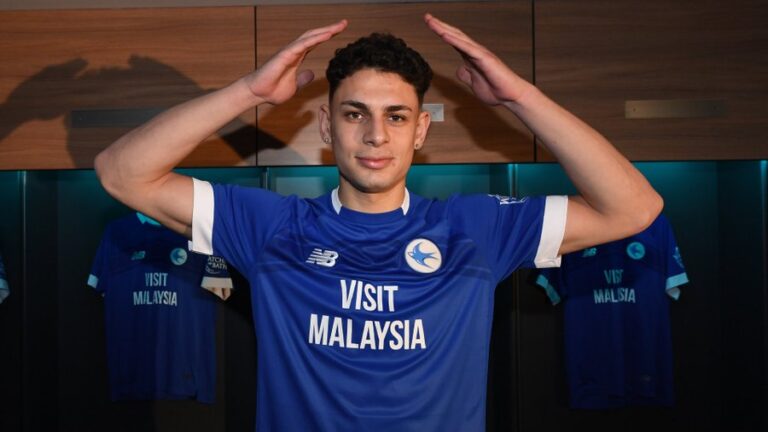 |
| Eye on the Ball: Haitham Dheeb was a two-way threat during CCQ |
Well, that was interesting. Four days, two grind out affairs, and a blowout win, now has Palestine one step closer to a first-ever appearance at an AFC Asian Cup. It wasn’t inspiring by any stretch of the imagination but anytime a team can string together three clean sheets in succession; good things are bound to happen.
Before we get into the nitty gritty of player performance and tactics it is worth putting this accomplishment in perspective. Games on the road are tough and Palestine play nearly every match, friendly or otherwise, outside the confines of the Holy Land. In qualifying for a major tournament, national teams tend to follow the formula of “Win at home; draw on the road.” In attempting to qualify and for the 2014 Challenge Cup and 2015 AFC Asian Cup, Palestine had to do it all on the road.
Although the Palestine FA tried to dance around it, the reality of the situation is that Nepal should not have been designated as a host country. They were awarded the rights to host the finals last year under some dubious circumstances and also hosted a qualifying group in 2009 and 2011. On paper the criteria for the hosts is pretty stringent- there needs to be an infrastructure in place capable of providing comfort and seamless functionality to three other national teams.
For whatever reason, this was not the case in Katmandu. First there were the leaked pictures of the atrocious state of the dressing rooms, then there was the state of the pitch, and to top it all off the comedic pictures of a horde of pigs attacking a training ground (stray dogs were a common occurrence). On his Facebook page, national team forward Mohammed Barakat said “Gaza is like Europe compared to Nepal” – which is a pretty damning, to say the least.
On the pitch, Palestine played effective if uninspired football in a hostile environment. In every one of their three matches, Nepalese fans showed up to cheer the opposition in full voice; against the home team- Nepalese fans nailed Musa Abu Jazar with a projectile which in normal circumstances would have resulted in the cancellation of the match.
The experimental nature of the side was also an issue. Suleiman Obeid who had never been favored by Jamal Mahmoud was called into the fold- and served as captain. Khaled Salem, so ineffective in front of goal for Shabab Al-Dhahrieh that he now moonlights as a centreback got minutes- and goals- as a forward. Fringe players like Fayez Aslieh and Adham Abu Rwais also were pushed into the fold.
Jamal Mahmoud did not choose to field this team, this was merely the best he could do with the circumstances handed to him. I don’t think qualification for the Challenge Cup was ever under doubt but let us not forget that Palestine have fielded better teams at the qualifying stage in the past. In 2009, Ezzat Hamzeh had a side that included Roberto Bishara, Majed Abusidu, Ahmed Keshkesh, Fahed Attal, Abdelatif Bahdari, and Ismail Al-Amour but could not muster a win against Kyrgyzstan or Nepal.
Player for player, even Moussa Bezaz had more talent and time when he led Palestine to the top of 2012 Challenge Cup Qualifying Group A in Myanmar.
With no month long training camps and no testing ground for this group of players it was never going to be pretty, but qualifying games rarely are. Some of the biggest and baddest regional powers struggle playing on the road (Argentina’s 6-1 loss to Bolivia comes to mind as well as the struggles of Mexico in 2010 World Cup qualifying) and it would be insane to expect Palestine to crush Bangladesh and Nepal in less than ideal surroundings. In the end, fans should look at this as part of a zero-sum game. The goal was to advance to the Finals in 363 days time and they did just that.
As for the performance, no team in the world experiments with so much on the line- no matter who the opposition. With qualification on the line and the margin of error close to zero, managers field their best teams. Thanks to the AFC’s ineptitude the Challenge Cup does not fall within FIFA’s official match days. Which means Palestine’s only route to the Asian Cup is not only via some byzantine second-tier tournament but without its best (read: internationally based) players.
That said, let’s give some credit to players who really stepped up during this tournament. Haitham Dheeb and the entire defense were on point for 270 minutes- even stepping up and scoring goals when asked! Palestine still lacks a true goal scorer but with a couple of more opportunities maybe Alaa Attieh or Eyad Abugharqud will eventually develop in the same way Ashraf Nu’man has. In the final match against Nepal, the midfield was a little discombobulated which will need to be addressed going forward.
Overall, Palestine took care of business- and might have a giant slice of luck coming their way later on this month when Group E action gets underway. If the Philippines-Turkmenistan match produces a winner then one of the tournament favorites could be out of the running before the tournament even begins.




